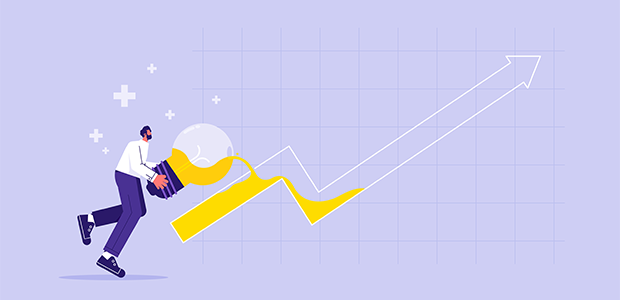
Innovation leaders' growth ambitions unhindered by challenging conditions
After a challenging 2023, business leaders from leading innovation hubs across the globe are showing optimism towards the global (70%) and national (63%) economic outlook, a stark contrast to their counterparts in the US (15%).
However, over half (52%) are preparing for a possible recession in 2024, as revealed by J.P. Morgan's first Business Leaders Outlook Innovation Economy Around the World survey.
In spite of the expected economic headwinds, leaders in the Innovation Economy remain positive about their business prospects for the year, with the vast majority (94%) forecasting that their revenues and sales, as well as profits (95%), will either grow or remain stable. They are also gearing up for expansion, with more than half planning to increase their workforce (58%) and boost their capital expenditures (70%).
“European founders are resilient and used to overcoming challenges, as they tend to go international early” said Alex McCracken, EMEA Tech Sector, Innovation Economy, J.P. Morgan. “Fortunately, there are a growing number of serial entrepreneurs who have scaled successfully that are now supporting the new generation of founders by providing knowledge, capital and connections.”
Cash management is key as VC-backed companies feel the squeeze
Over three-quarters (78%) of those surveyed indicated that their business costs are escalating due to increased inflation, which is expected to affect the burn rates of early-stage companies. Despite this, nearly three-quarters (74%) intend to expand their credit requirements in the coming year, indicating a strong desire for ongoing growth.
From a funding standpoint, nearly half (47%) of the respondents have secured sufficient capital to avoid additional fundraising until the end of this year. Meanwhile, only 27% are considering new equity rounds, and 20% are looking at raising debt.
“Although investors continue to sit on large sums of dry powder, they are being more discerning with where they deploy capital, and business leaders will need to be strategic when seeking new fundraising options,” said Rosh Wijayarathna, Innovation Economy, UK & Ireland, J.P. Morgan.
Declining valuations aren’t deterring long-term plans
Despite a downturn in tech valuations, leaders within the Innovation Economy are relatively unfazed about its potential impact on their operations—with merely 9% foreseeing a halt in new product development and innovation due to lower tech valuations, in stark contrast to 67% of their counterparts in the US.
Looking to the future, the majority of business leaders have defined strategies for their companies: 35% aim to keep their businesses private, 33% foresee a potential acquisition, and 28% are considering an Initial Public Offering (IPO).
AI makes a splash in global innovation hubs
While a quarter (27%) of respondents cited the adoption of artificial intelligence (AI) as a top challenge, almost all (94%) of these leaders are welcoming the new technology with open arms, stating they are already using or plan to use AI in the year ahead. The most common areas of application are rooted:
- Business operations (64%)
- Product development (60%)
- Human resources/training (50%
- Internal/external communications (49%).
“While 2023 will likely be remembered as the year of AI attention, we can expect 2024 to become the year of AI adoption,” said Max Hauer, Innovation Economy, DACH Region, J.P. Morgan. “We expect to see founders thinking about how they can incorporate AI into their products and processes even more, and investors will expect answers to these and similar questions as part of their due diligence.”

